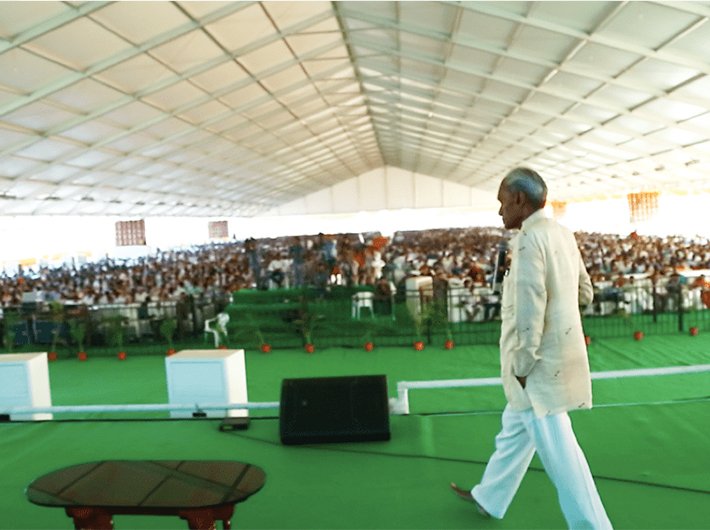Zero budget natural farming, or ZBNF, is the buzzword and Andhra Pradesh is leading the ‘beyond organic’ way
In the 1970s, Andhra Pradesh was one of the first states to be transformed by the Green Revolution. Today, another revolution is under way – a natural farming revolution. The full name is zero budget natural farming, or ZBNF. The term is recognised by the UN’s Food & Agriculture Organisation (FAO) and millions of farmers in Andhra Pradesh, Karnataka, and across the Asia-Pacific are taking to its principles. Andhra Pradesh aims to become, by 2024, the first state where all farmers practise ZBNF.
The initiative is led by Subhash Palekar, who has added the idea of zero budgeting to natural farming, an ecological approach to farming advocated by the Japanese farmer-philosopher Masanobu Fukuoka (1913-2008). A microbiologist and trained agricultural scientist, Fukuoka is said to have been changed by a spiritual experience. His five principles of natural farming are: no tillage; no fertiliser; no pesticide or herbicide; no weeding; no pruning. Even ‘organic farming’ wouldn’t pass muster with Fukuoka: he called it a modern technique that disturbs nature. Fukuoka’s 1975 book. The One-Straw Revolution, was influential. In 1988, he won the Viswa Bharati University’s Desikkotam award as well as the Ramon Magsaysay award.
The pith of ZBNF, which Palekar champions, is: no money is spent on inputs; farming is done with nature and without chemicals. So cowdung and cow urine are used to nourish soil and crop and also to keep pests away. Palekar’s efforts have borne fruit in Andhra Pradesh rather than in his home state Maharashtra. Activists there say the Maharashtra government hasn’t subsidised natural farming the way it has subsidised the use of chemical fertilisers and pesticides. But in Andhra, five lakh farmers trained by Palekar have gone for ZBNF in some 3,000 villages.
Jagannath Reddy, a social worker with the Mahila Abhivruddhi Society, Andhra Pradesh (APMAS), a voluntary group, says small farmers in the many districts he has worked in are coming forward to practise ZBNF. He is working with a group of 60 farmers in Madanapalle in Chittoor district who are linked to a home delivery service run by APMAS. Vegetables come in small quantities and all of them get purchased at market rates. Residents get vegetables and fruit free of toxic chemicals at their doorstep. Reddy is set to attend a farmer training programme that Palekar will conduct. This will be the second time: earlier, he’d joined farmers from Tirupati for the training.
The government has taken note of many success stories in ZBNF. Jetti Satyanarayana of Ameenabad village in Guntur district had leased an acre of land and approached trainers. He chose to grow chillies, sensitive to pests, and the trainers taught him to treat seeds with ghee and camphor. The season’s crop of 52 quintals went for Rs 8,000 per quintal: a gross income of Rs 4.14 lakh. His investment: Rs 1.12 lakh, mainly on cold storage.
Y Lakshmi, of Boomanacheruvu cluster, Madanapalle Mandal in Chittoor district, was part of the Velugu project for sustainable agriculture, in which farmers were given credit to become financially independent. She grew paddy on three acres using ZBNF and got 15 bags of rice more than her neighbours. The tribal belt that surrounded her fields was motivated by her example. Six farmer groups exchanged ideas with her and spread the word on her ZBNF success.
While technically Palekar is the spirit guiding the ZBNF programme in Andhra Pradesh, the implementation is with T Vijay Kumar, adviser to the Andhra Pradesh government and vice chairman of the Rythu Sadhikarana Samstha. He is also a key mover in the Society for Elimination of Poverty (SERP), set up by the government in 2000. Since farming was the main occupation of majority of people in the villages, SERP zeroed in on natural farming as a way to make farming less expensive and more remunerative. Vijay Kumar says ZBNF was a natural outgrowth of SERP. He was a secretary to the government when it was set up; later he moved to the rural development ministry in Delhi. Now retired, he is back working on his pet project.
He has a clear goal: 80 lakh hectares by 2024 and 90 percent of cultivated area by 2026 should be under natural farming. The confidence of both Vijay Kumar and the state government comes from the work being done by trainer farmers, each of whom tries to reach out to and convert 100 farmers. The idea is catching on with neighbouring states as well, with Karnataka and Tamil Nadu recently announcing pilot ZBNF projects.
feedback@governancenow.com
(The article appears in December 15, 2018 edition)

